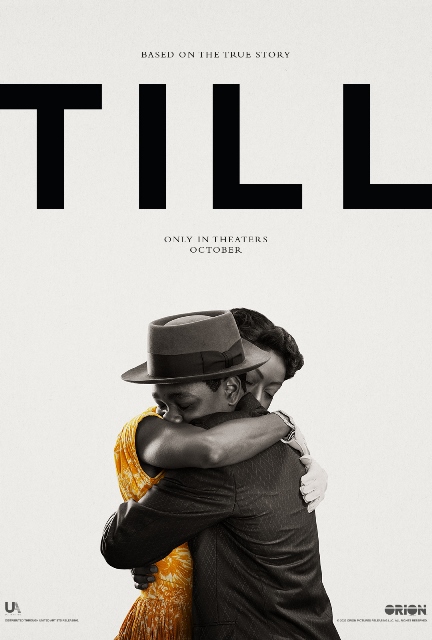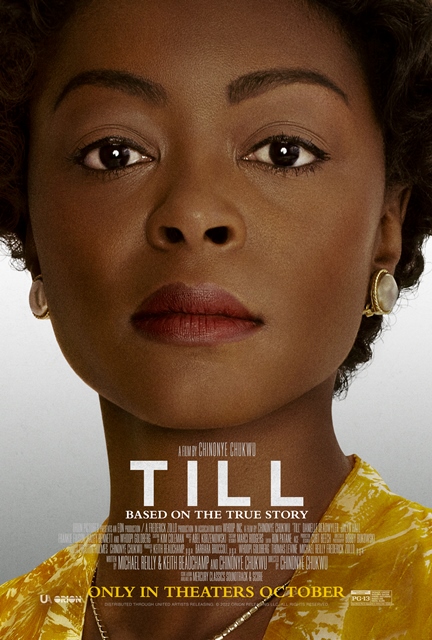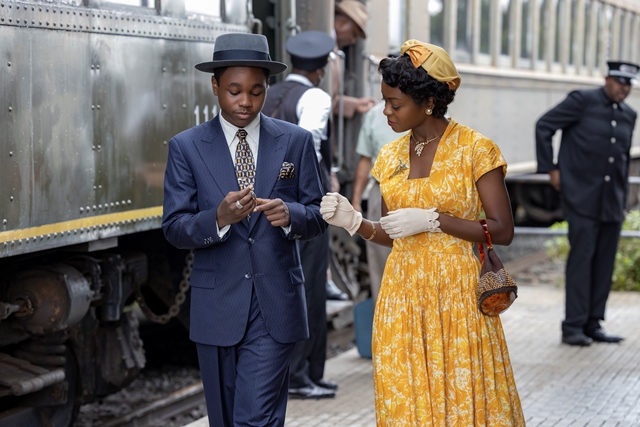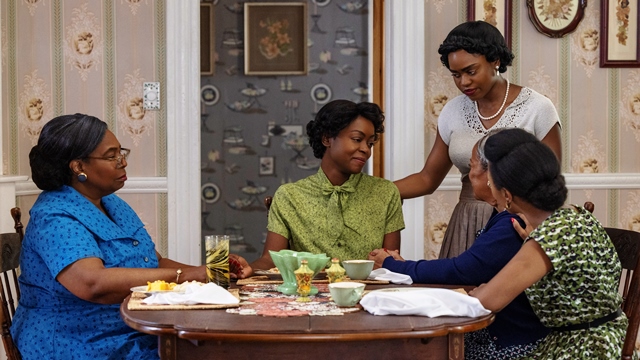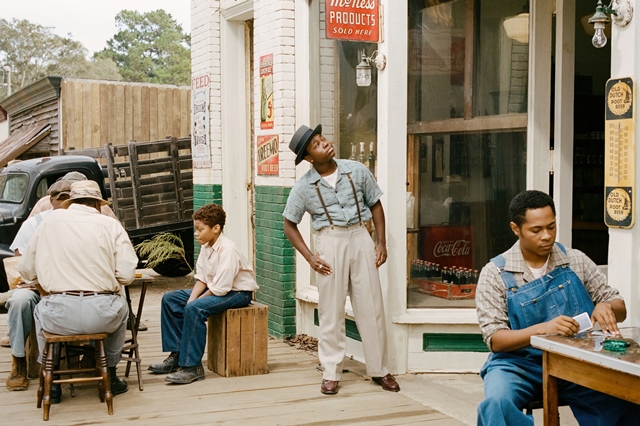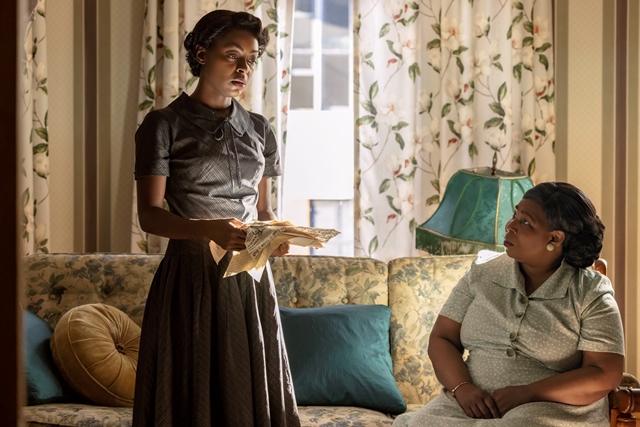‘Till’ movie: Racial murder helped spark civil rights movement
By Rusty Wright
(This article first appeared on WashingtonExaminer.com.)
White racists brutally murdered young Emmett Till in 1955 Mississippi. His death, and his mother Mamie’s reaction to it, helped spark the civil rights movement. MGM’s Till tells their compelling story. What gave this grieving mother strength to pursue social change?
The cast includes Danielle Deadwyler (The Harder They Fall), Oscar-winner Whoopi Goldberg (Ghost) and Jalyn Hall (Shaft).
Writer/director Chinonye Chukwu tells this story “from the maternal point of view of Mamie Till-Mobley.” We see Mamie (Deadwyler) singing and dancing with 14-year-old Emmett (Hall). She ties his necktie, helps him pack, loves him deeply.
When she put him on a train in Chicago to visit Mississippi relatives, neither suspected impending tragedy. Emmett was outgoing, humorous, and loved church involvement. Mamie envisioned him as a pastor someday.
Kidnapping and murder
One August evening, Emmett encountered store clerk Carolyn Bryant, a married white woman. Bryant later claimed Emmett flirted, grabbed her, and wolf-whistled at her.
Carolyn’s husband Roy Bryant and his half-brother J.W. Milam kidnapped Emmett at gunpoint. Three days later, Emmett’s horribly mutilated body was found in a river.
Chukwu “refused to depict [all the] brutality in the film,” focusing instead on “Mamie’s remarkable journey in the aftermath.”
We do see Emmett’s terribly disfigured face, and Mamie demanding an open-casket funeral for the world to see. Thousands came. Jet magazine published pictures of the corpse, sparking widespread outrage.
Trial, acquittal, confessions
Roy Bryant and Milam stood trial for murder. Witnesses to the abduction testified. The defendants said they released Emmett alive. The defense argued the mutilated body was unidentifiable.
In Till, Deadwyler poignantly depicts Mamie’s courtroom testimony that she knew her only child’s entire body and that corpse was Emmett’s, even bearing his father’s ring.
The jury of 12 white males deliberated for just 68 minutes (including their Coke break), acquitting both.
A few months later – protected by double-jeopardy laws – Bryant and Milam sold their murder confessions to Look magazine.
In 2005, DNA tests confirmed the exhumed corpse was Emmett’s. In 2007, Carolyn Bryant recanted her story, though not without controversy. Grand juries have twice declined to indict her, most recently in August 2022.
Inspiring civil rights movement
Emmett’s death and Mamie’s response helped inspire the U.S. civil rights movement. Rosa Parks later said she thought of Emmett when deciding to keep her front bus seat, triggering the Montgomery bus boycott, eventually led by Martin Luther King, Jr. 1963’s March on Washington fell on the eighth anniversary of Emmett’s death.
In the wake of the tragedy, Mamie traveled promoting racial justice. She became a teacher, training boys and girls to give MLK speeches. “God told me, ‘I have taken one from you, but I will give you thousands,'” she wrote.
Mamie’s faith
Sometimes overlooked in her story is spirituality’s central role, which Till includes. Dartmouth professor Vaughn Booker argues that Mamie’s faith was foundational to her handling Emmett’s murder and her civil rights activism.
“I prayed for … strength…and…courage,” she recalled. “Lord, take my soul… show me what you want me to do, and make me able to do it,” she prayed at the funeral.
Knowing that Emmett had “accepted Jesus Christ” comforted her. But, as often happens in crises, she questioned God: “I had prayed for answers and when they didn’t come right away…I became angry with God. Why had this happened to Emmett? Why had this happened to me?”
Gold from ashes
Over time, she saw gold emerge from ashes: “I…thanked God that He felt that I was worthy to have a son that was worthy to die for such a worthy cause” (advancing civil rights). Mamie maintained, “Emmett was not mine…he belonged to…God [who] had chosen him for this particular mission.”
She felt Emmett’s death helped her better appreciate “what Jesus had given for us, the love he had for us.”
“I never felt any hatred for Bryant and Milam,” she affirmed. “…But as horrible a crime as they committed against my little boy, against me, against society, their true crime was against God.” Each predeceased her; she lamented their eternal state: “I feel so very sorry for them. In this world, they only had Mamie to deal with.”
Till makes me glad this world had Mamie to deal with. This moving film powerfully presents her story with grace, dignity, and passion.
Rated PG-13 (USA) “for thematic content involving racism, strong disturbing images and racial slurs.”
www.unitedartistsreleasing.com/till In theaters October 28 (USA) International releases (5 continents)
Rusty Wright is an author and lecturer who has spoken on six continents. He holds Bachelor of Science (psychology) and Master of Theology degrees from Duke and Oxford universities, respectively. www.RustyWright.com
Copyright © 2022 Rusty Wright
# # #
Editors: Note pictures below. For access to these and more, check here, here, here, here, and here.
